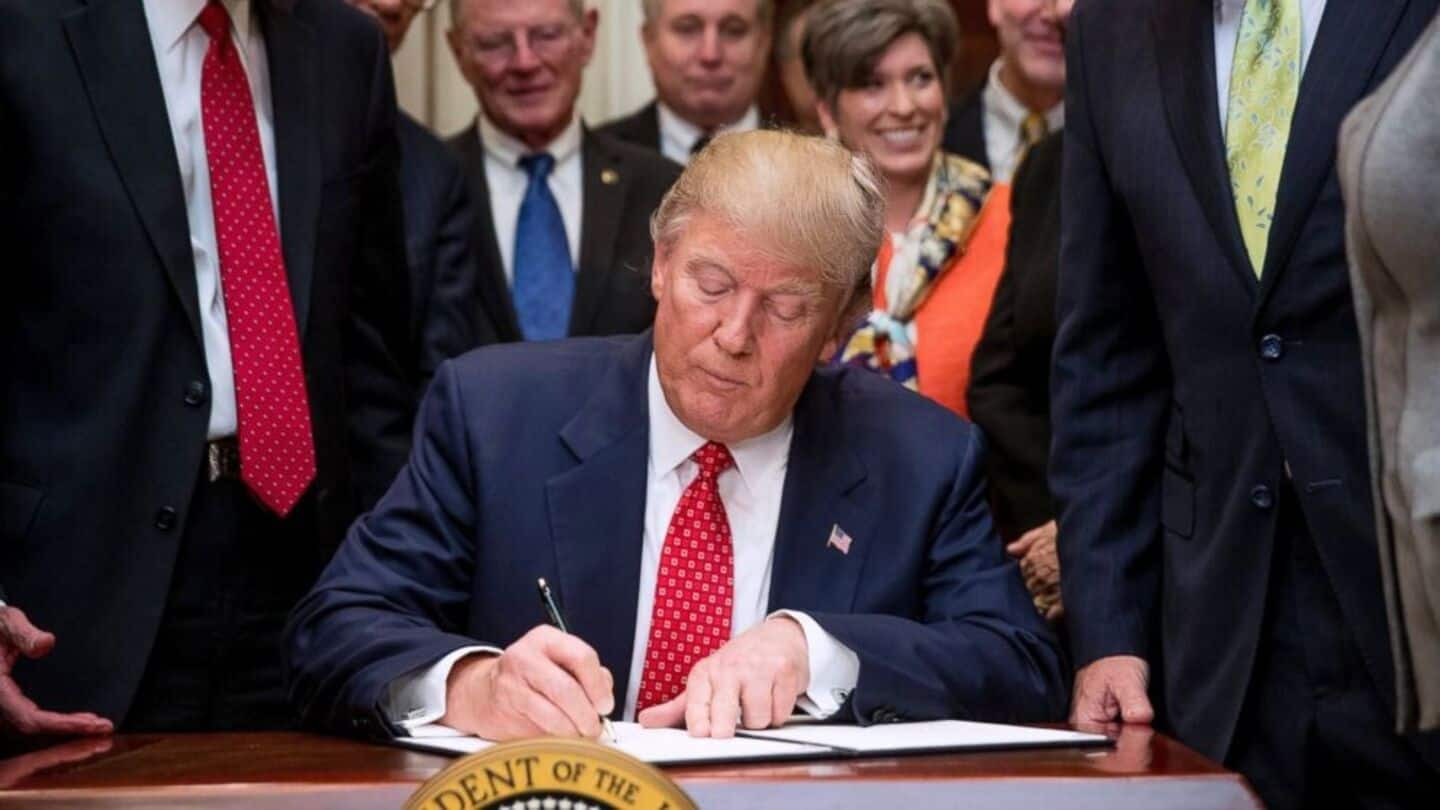
Trump considers stricter green card rules; Who will be hit
What's the story
The United States administration is reportedly considering stricter green card regulations for citizens of countries affected by President Donald Trump's travel ban. The proposal could make it more difficult for certain immigrants to obtain permanent residency in the US. According to internal Department of Homeland Security documents reviewed by The New York Times, the plan instructs US Citizenship and Immigration Services (USCIS) to consider "country-specific factors" from the travel ban as a "significant negative factor" in green card applications.
Policy impact
Proposed change adds risk assessment based on nationality
If the proposal is implemented, it would add a new layer of risk assessment based on an applicant's nationality to the current factors considered by immigration officers. President Trump has defended this idea, citing a terrorist attack in Boulder, Colorado, as evidence of "extreme dangers posed to our country by the entry of foreign nationals who are not properly vetted."
Plan
What draft proposal says
Draft policy documents reveal that some countries do not provide enough background-check information to the US or lack reliable authorities for issuing passports or identity documents. This, officials say, limits their ability to decide whether someone is eligible for an immigration benefit. According to the draft proposal, USCIS officers would treat travel-ban "country-specific factors" as automatic negative marks for applicants. This would include green cards, asylum, parole, and other discretionary privileges. This, however, would not apply to citizenship applications.
List
Travel ban list
The travel ban list currently includes Afghanistan, Chad, the Republic of Congo, Equatorial Guinea, Eritrea, Haiti, Iran, Libya, Somalia, Sudan, and Yemen. Seven more countries face partial restrictions barring their citizens from permanently settling in America or obtaining tourist or student visas. These are Burundi, Cuba, Laos, Sierra Leone, Togo, Turkmenistan, and Venezuela.
Policy exemptions
Exemptions and criticisms of proposed policy change
The original travel ban did not apply to everyone from the affected countries. Valid visa holders and lawful permanent residents are exempt. Athletes traveling for major international events like the 2026 FIFA World Cup or the 2028 Los Angeles Olympics also qualify for exemptions. Certain religious and ethnic minorities facing persecution in Iran can seek relief under exemption rules. However, former Biden administration officials said the proposed policy change punishes individuals based on their home governments rather than personal characteristics.